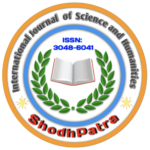| Article Title |
The Role of the 1947 Tribal Invasion in Maharaja Hari Singh’s Decision to Sign the Instrument of Accession |
| Author(s) | Asra Manzoor, Dr. Poonam. |
| Country | India |
| Abstract |
This paper examines how the October 1947 tribal invasion of Jammu and Kashmir influenced Maharaja Hari Singh’s decision to accede to India. It analyzes the immediate and contextual factors surrounding the Maharaja’s choice, arguing that the invasion was the decisive catalyst that overrode his initial preference for independence. Drawing on archival letters and contemporary accounts, including the Maharaja’s own appeal to Lord Mountbatten, it shows that large-scale tribal violence and chaos created a “grave emergency” that left the Maharaja no option but to seek Indian assistance (and thus to sign the Instrument of Accession). The study reviews scholarly interpretations (Schofield 2003; Bose 2003; Snedden 2013; Bazaz 1954) and primary documents to situate the tribal invasion within the broader crisis in Kashmir. It traces the pre-1947 political context, the events of late October 1947, and the Maharaja’s communications with Indian leaders. The conclusion highlights that while multiple pressures shaped the accession debate, the tribal incursion was the immediate trigger that forced Hari Singh’s hand. These findings underscore the invasion’s central role in the accession and its lasting impact on Kashmir’s fate. |
| Area | History |
| Issue | Volume 2, Issue 9 (September 2025) |
| Published | 09-09-2025 |
| How to Cite | Manzoor, A., & Poonam, (2025). The Role of the 1947 Tribal Invasion in Maharaja Hari Singh’s Decision to Sign the Instrument of Accession. ShodhPatra: International Journal of Science and Humanities, 2(9), 24-28, DOI: https://doi.org/10.70558/SPIJSH.2025.v2.i9.45319. |
| DOI | 10.70558/SPIJSH.2025.v2.i9.45319 |
ShodhPatra: International Journal of Science and Humanities

 View / Download PDF File
View / Download PDF File